-
Join the
Digital Meets Culture
Open Newsroom! If you have interesting news and events to point out in the field of digital cultural heritage, we are waiting for your contribution.
If you have interesting news and events to point out in the field of digital cultural heritage, we are waiting for your contribution.
-
Free text
-
-
Upcoming events
-

Step into the world of history and heritage through stunning 3D collections that bring the past to life. From pre-cinema artifacts in Girona to everyday objects and cultural emblems from the ancient oppidum of Bibracte in Burgundy, these collections … Continue reading →
 The deadline for submitting photographic projects for the AIPAI PHOTO CONTEST has been extended
The deadline for submitting photographic projects for the AIPAI PHOTO CONTEST has been extendedThe deadline for submitting photographic projects for the 3rd edition of the AIPAI PHOTO CONTEST, the photography contest organized by the Italian Association for Industrial Archaeological Heritage ETS, has been extended to October 31. The contest is organized in collaboration with DICEA … Continue reading →
 Brussels, November 13th and 14th, 2024
Brussels, November 13th and 14th, 2024On November 13th and 14th, OpenLab.brussels is hosting the international conference “Creating Knowledge through Participatory Research” in Brussels. The OpenLab.brussels is a joint venture of ULB-VUB dedicated to participatory research. It aims to mobilize our academic community and public or private stakeholders … Continue reading →
Area: digital heritage
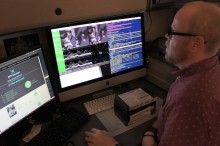
This is the nineth in a series of interviews with people using MediaConch within their institutions. Brian is the head of the Digital Production Unit for the Special Collections & Archives Research Center at Oregon State University Libraries & Press. He is using MediaConch for validation and policy checking during the quality control process for the video files. He also used DPF Manager and veraPDF for quality control of TIFF and PDF files. Continue reading

This is the eight in a series of interviews with people using MediaConch within their institutions. Patricia Falcao is a time-based media conservator at Tate. She uses MediaConch to check files that have resulted from migration. Francesca Colussi is one of the senior time-based media conservation technicians at Tate. She mainly uses MediaConch both for local policy checking and in-house quality control, as a comparison and ‘problem solving’ tool to spot anomalies in exhibition format files. Continue reading

MediaArea is immensely grateful to have been involved in the PREFORMA challenge over the past three years. Through this initiative, MediaArea has been given the opportunity to further contribute the cultural heritage sector through the development of the open source audiovisual conformance checker tool, MediaConch. To better understand our users and plan more efficiently for the future of this software, MediaArea would appreciate your feedback via this MediaConch Users Survey Continue reading
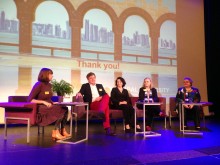
Hosted by the National Library of Estonia, the PREFORMA International Conference “Shaping our future memory standards” brought together 150 people worldwide to discuss the importance of standardisation and file format validation for the long term preservation of digital cultural content, discover the potential of the open source conformance checkers developed in PREFORMA and look at future challenges and opportunities. Continue reading
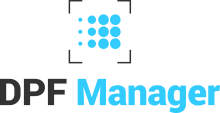
On Wednesday, December 13, PACKED and the Royal Library of Belgium, in collaboration with the University of Girona, organise a workshop “Quality Control of TIFF Files”. The workshop is intended for digital archivists who are responsible for the long-term preservation of TIFF files. During the workshop you will learn how to gain an insight into the technical properties of TIFF files and what you can do to preserve them for future generations. The workshop is conceived as a hands-on session, where participants get started with TIFF files from their own collection. Continue reading

Programmed by professionals working in the field, the annual AMIA Conference is the largest gathering of motion picture and recorded sound archivists and interested professionals. More than 550 people from around the world, interested in the preservation and use of moving image materials, meet every year to share information and work together. The 2017 edition of the AMIA Conference will be held on 29 November – 2 December 2017 in New Orleans. Continue reading

On Friday, November 24, PACKED and the Royal Library of Belgium, in collaboration with the Open Preservation Foundation, organise a workshop “Quality Control of PDF Files”. The workshop is intended for digital archivists who are responsible for the long-term preservation of PDF files. During the workshop you will learn how to gain an insight into the technical properties of PDF files and what you can do to preserve them for future generations. The workshop is conceived as a hands-on session, where participants get started with PDF files from their own collection. Continue reading
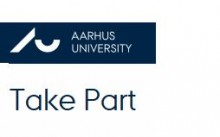
Collaborative approaches to culture are nowadays a current issue; they represent a valuable tool to promote democratic participation, sustainability and social cohesion by helping to address new social challenges. On this subject, the TAKE PART project led by the … Continue reading
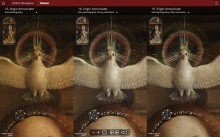
The Getty Foundation and the Royal Institute for Cultural Heritage (KIK-IRPA, Brussels) announced today the launch of major enhancements to the website ‘Closer to Van Eyck,’ which provides breathtaking details of one of the most important works of art in … Continue reading

Announcing the “Culture and Computer Science” conference entitled “Hybrid Systems” – the 16th edition of the ”Culture and Computer Science“ conference series brings into focus best practice examples, challenges and future trends in the fields of hybrid systems, augmented, mixed … Continue reading























